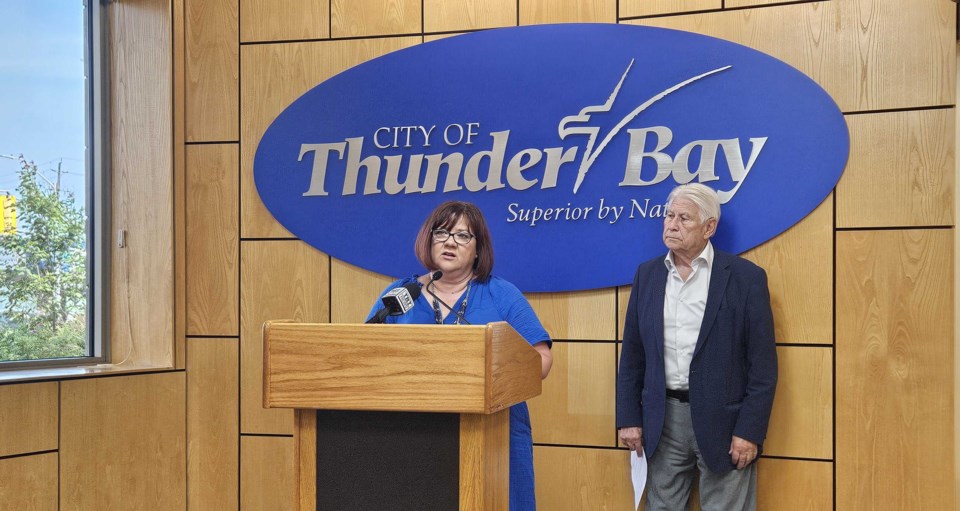THUNDER BAY — Delegates from the city are back after a trip to Ottawa for the annual Association of Municipalities of Ontario conference.
Mayor Ken Boshcoff, Westfort Coun. Kristen Oliver, and At-large Coun. Shelby Ch'ng were represented the city by securing seven meetings with six ministers and a parliamentary assistant during the conference.
At-large Coun. Kasey Etreni and City Manager John Collin were also in Ottawa.
Oliver is the chair of Intergovernmental Affairs for the city, and Ch'ng is the vice chair.
A variety of topics were discussed during the meetings, including increasing funding for the Thunder Bay District Health Unit, Oliver said.
"There was a commitment to review that and look at how we can receive some funding to alleviate some of the pressure that we're seeing through our levy that we provide, but in the program and service delivery that the health unit provides for people," she noted.
The health unit provides care for individuals in Thunder Bay and parts of the region.
Oliver said their meeting regarding more funding for police when targetting guns and gangs in the region was their "strongest meeting."
She believes the province is using a philosophical method when choosing to fund southern Ontario regions more than Northwestern ones.
"There might be a philosophical policy decision made to maybe look at this from the root cause," Oliver explained.
"A lot of funding has been flowing into Dufferin and Peel, the GTA, all those regions. We do know that the guns and gangs mostly are coming from the Toronto and the Ottawa area.
"So philosophically, I think that there was a decision made to look at addressing this at the root cause, and then hopefully we wouldn't see the City of Thunder Bay dealing and having to address the issues — but we are continuing to see that."
Oliver believes there was interest from the province in looking at how funding is doled out to police services that receive funding for guns and gangs.
Boshcoff added that the province has its own formula for deciding how much funding each municipality gets.
"We're trying to work around it. We're trying to make our case," he said.
"Basically, for us, the success of the police force in actually achieving success in all the violent crime and those other aspects is negated by a statistical percentage. So, I think that in fairness to our officers, basing [funding] on a ratio isn't fair to the municipality, considering the area we're servicing."
The delegation also had the chance to speak to ministers about the future of the highway that runs through the city, lithium and other mining opportunities and the multi-use indoor turf facility.
The province had previously announced there would be $200 million available for municipalities to apply to upgrade or build new recreation facilities — with a $10-million cap per project application.
"We know that this program will be oversubscribed," said Oliver.
"All communities are looking at enhancing their quality of life and recreation facilities. Thunder Bay's not alone in that. There is a $10-million cap. And we did make the good push to the minister that we will be filling out that application and submit that in support of the indoor turf facility."
The province is also well aware that it needs to do something with the former Lakehead Psychiatric Hospital site.
"There's a collaborative approach in terms of working with the Ministry of Municipal Affairs, working with the Ministry of Infrastructure to see how they can best utilize the spaces that many communities in this province have that are Crown-owned but would make desirable opportunities for development," said Oliver.
"We're starting to look at ways that that development piece would work, just so that it's not a 'what if.' It's not a pipe dream. This is a 'what we plan on doing with it,' so that, hopefully, there's that opportunity to build on that piece [of land]."
Katie Nicholls is a Local Journalism Initiative Reporter with Newswatch
